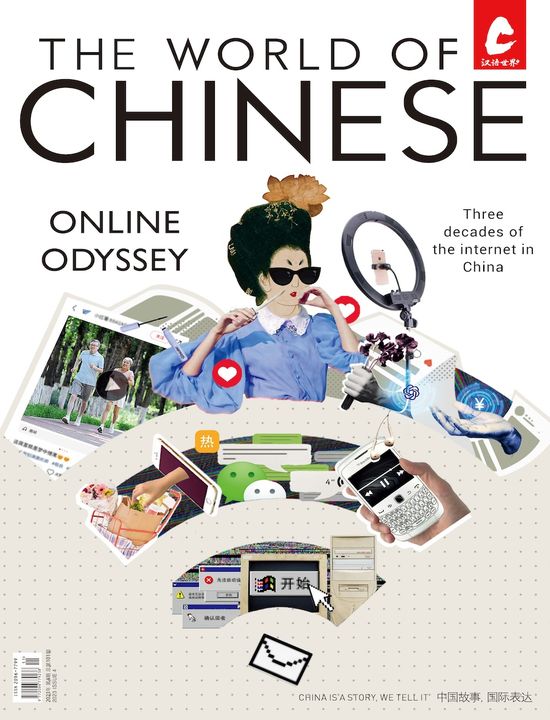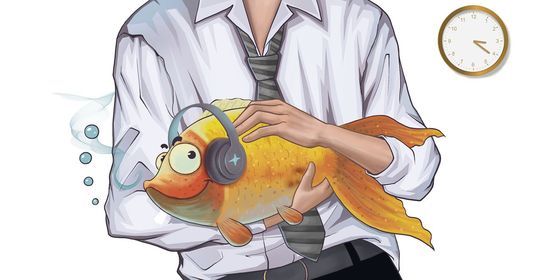TV addiction now has its own slang
According to TV viewers, China experiences chronic “series famine” (剧荒, jùhuāng). The nation’s small screens are a parched landscape of stale re-runs and insipid reality shows, interspersed with the odd new drama or comedy with both good entertainment and production value—but often get cancelled due to “technical issues” (a code word for censorship).
This summer, however, audiences were suddenly spoiled for choice when a number of hotly anticipated shows premiered concurrently: historical mysteries The Longest Day in Chang’an (《长安十二时辰》) and The Untamed (《陈情令》); the romantic comedy Go Go Squid! (《亲爱的,热爱的》); and Novoland: Eagle Flag (《九州缥缈录》), an adaptation of China’s oldest online fantasy novel series.
Keeping up with this glut of series (追剧, zhuījù) requires dedication. Viewers have worked out that they must watch about 10 new episodes each evening—at least three of Chang’an on Mondays and Thursdays, two of Untamed on Monday and Wednesday, and two of Squid! every day except Saturday—or risk falling out of the loop, or worse, hearing spoilers the next day. This epic TV-watching regime reminds some of the compulsory military training from their school days, hence the term “military drill-style binging (军训式追剧, jūnxùnshì zhuījù).”
The term is useful for expressing one’s love for a show. For instance, “I’ve been military-style binging recently. The Longest Day in Chang’an is so addictive!” (我最近真的是军训式追剧,《长安十二时辰》实在是让人停不下来。Wǒ zuìjìn zhēn de shì jūnxùnshì zhuījù, Cháng’ān Shí Èr Shíchen shízài shì ràng rén tíng bú xiàlái.) A related expression, 军训式追星 (jūnxùnshì zhuīxīng, “military drill-style star-chasing”), describes viewers who follow their favorite actors’ social media updates with similarly militant fervor.
So much high quality TV after such a long drought is enough to make one giddy—and the term 上头 (shàngtóu, “intoxicated”) describes just such heady excitement. Originally referring to the dizziness and flushed face one gets from drinking alcohol, shangtou was picked up by gamers to describe their obsession with the video game Dota, and later by viewers of Squid!
Scenes in which the male lead pins the female lead to the wall to express adoration—known as kabedon in Japanese dramas—are particularly apt to turn fans’ heads: “The kabedon in Squid! is so sweet and shangtou.” (《亲爱的,热爱的》里的壁咚戏太甜了,太上头了。Qīn’ài de, Rè’ài de” lǐ de bìdōngxì tài tián le, tài shàngtóu le.) Female viewers, stereotyped as being apt to swoon over romance (and “bromance”), are sometimes known as 上头女孩儿 (shàngtóu nǚháir, “drunk girls”) or 上头姐妹 (shàngtóu jiěmèi, “drunk sisters”).
Some viewers worry about the long-term impact of military-style watching. As an internet proverb goes: “Staying up late brings a moment’s joy and a deathly feeling at work the next day.” (熬夜一时爽,上班火葬场。Áoyè yīshí shuǎng, shàngbān huǒzàngchǎng.) Others, though, insist that “watching TV brings a moment’s joy, and continuing to watch brings continuous happiness.” (追剧一时爽,一直追剧一直爽。Zhuījù yīshí shuǎng, yīzhí zhuījù yīzhí shuǎng.)
Tube Troops is a story from our issue, “The Good Life.” To read the entire issue, become a subscriber and receive the full magazine. Alternatively, you can purchase the digital version from the App Store.














